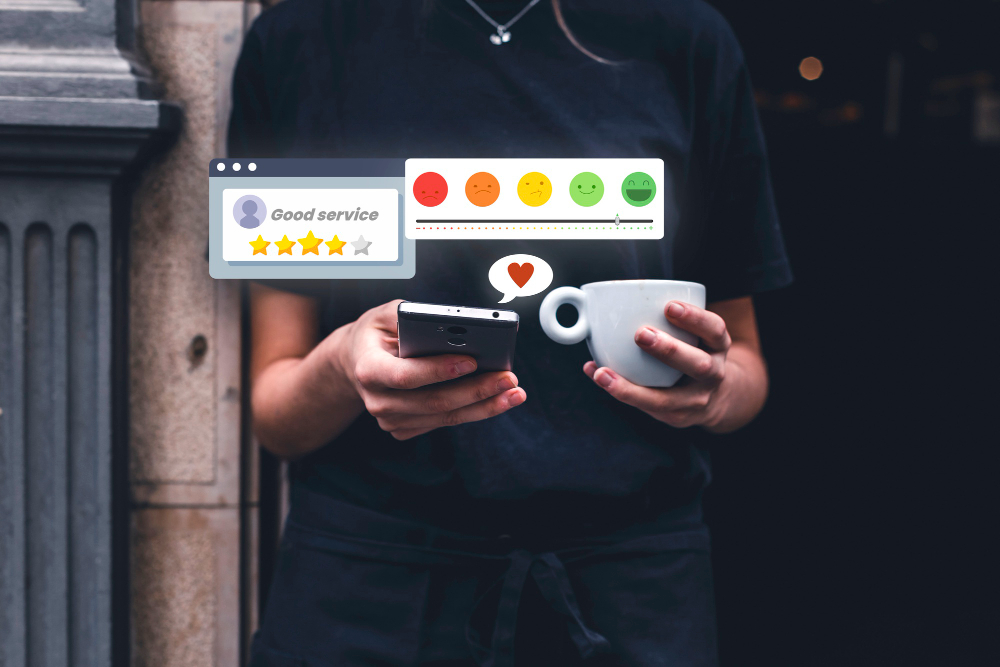In today’s digital-first world, your reputation online is your most valuable asset. Whether you’re an individual professional or a growing business, how people perceive you online directly influences your credibility, trust, and success. A single negative review, misleading comment, or outdated piece of content can overshadow years of hard work. This is why understanding when and why to repair online reputation is essential to protect and strengthen your digital identity. The internet never forgets — but with the right strategy, you can take control of your narrative and ensure it reflects your best self.
Repairing your online reputation isn’t just about damage control — it’s about long-term brand sustainability. This blog will walk you through why reputation repair matters more than ever, how it impacts your business or career, and actionable insights to help you manage it effectively. You’ll also discover how professional ORM (Online Reputation Management) services like AiPlex ORM can help you rebuild trust, enhance visibility, and create a resilient digital image. Let’s dive in to understand why repairing your online reputation should be your top priority right now.
Understanding Online Reputation in the Digital Era
The online world has transformed how people form opinions about you or your brand. In just a few clicks, potential clients, partners, or employers can find everything they need to make a decision. This instant access makes your online reputation one of your strongest—or weakest—assets. Understanding how it’s formed and how it can be affected helps you realize why maintaining and repairing it is critical in today’s interconnected environment.
How Online Reputation Is Built
Your online reputation is a collection of what’s said about you across the internet—reviews, social media posts, articles, news mentions, and even forum discussions. Each of these digital footprints contributes to the public perception of your brand. The challenge arises when inaccurate or outdated information dominates search results. For instance, a business with ten great reviews and one negative one often sees that single bad review shape public opinion disproportionately. Repairing online reputation means taking control of this imbalance, ensuring the positive outweighs the negative, and the truth stands out.
A well-maintained reputation goes beyond reviews—it’s about how you engage online. Brands that respond professionally to criticism and demonstrate transparency are seen as trustworthy. The goal isn’t to eliminate criticism entirely but to manage it strategically. This proactive approach is what distinguishes brands that grow online from those that fade due to unmanaged digital perception.
The Cost of Ignoring Reputation Damage
When a business ignores negative publicity or online attacks, the cost goes beyond lost customers. Reputation damage can lead to reduced search visibility, lower trust, and even decreased revenue. Studies consistently show that over 80% of consumers research a company online before making a purchase. If what they find isn’t positive, they move on to competitors. That means one unchecked comment, low rating, or false article can drastically affect your conversions.
Repairing your online reputation early prevents small issues from snowballing into major crises. Think of it as preventive healthcare for your brand image. Regularly monitoring and correcting inaccuracies keeps your online presence aligned with your real-world credibility, ensuring that your reputation remains an asset, not a liability.
Why Reputation Repair Is an Ongoing Process
Many assume reputation repair is a one-time task—a response to a bad review or PR issue. In reality, it’s a continuous process of monitoring, improving, and maintaining your digital presence. The internet evolves rapidly; new platforms, trends, and opinions emerge daily. A proactive reputation management strategy ensures that your online image grows with your success, staying consistent and credible.
Repairing online reputation requires consistent updates, engaging content, and professional handling of feedback. Whether it’s posting positive news stories, managing reviews, or updating professional profiles, ongoing reputation repair builds resilience. It’s the difference between reacting to damage and actively shaping public perception.
Signs That You Need to Repair Online Reputation
You may not realize your online reputation needs repair until it starts impacting your business. Warning signs include a sudden drop in inquiries, poor search results showing negative or outdated content, or increased customer skepticism. In many cases, individuals discover reputation issues only after losing potential opportunities.
Regularly auditing your online presence helps you stay ahead. Search for your name or brand frequently to see what appears. If negative or irrelevant results dominate, it’s time to act. The sooner you identify and repair issues, the easier it is to restore trust and maintain digital authority.
Role of Professional ORM Services
While individuals can manage basic online profiles, reputation repair often requires expertise. Professional ORM services like AiPlex ORM specialize in tracking, analyzing, and resolving digital reputation issues. They use advanced monitoring tools, SEO techniques, and content strategies to suppress harmful content and promote positive narratives. This ensures a balanced and authentic representation across search engines and social media platforms.
Partnering with an ORM expert not only repairs damage but builds a long-term foundation for trust. With consistent efforts, your online presence becomes a true reflection of your achievements, values, and reliability—turning challenges into growth opportunities.
How Repairing Online Reputation Impacts Business Success
Reputation isn’t just about perception—it directly affects revenue, partnerships, and growth. Businesses that actively manage their online image are more likely to gain customer loyalty, attract investors, and achieve long-term sustainability.
Boosting Customer Trust and Loyalty
Trust is the currency of the digital marketplace. When customers see consistent, positive feedback and professional engagement, they feel confident purchasing from or partnering with you. Repairing online reputation ensures that potential customers encounter accurate and favorable information about your brand.
Over time, this trust translates into loyalty. Customers who believe in your authenticity are more likely to recommend your services, leave positive reviews, and become repeat buyers. A repaired and well-maintained online reputation strengthens customer relationships and enhances your brand’s credibility in competitive markets.
Improving Search Engine Visibility
Search engines prioritize authoritative and relevant content. If your brand has negative or misleading information ranking high, it can harm visibility. Reputation repair includes SEO-driven content creation that pushes positive and accurate narratives upward, ensuring your brand’s best side appears first.
When you repair online reputation through high-quality articles, press releases, and customer success stories, search algorithms recognize your brand’s relevance and reliability. This not only improves visibility but also boosts organic traffic—making reputation management an essential part of any digital marketing strategy.
Enhancing Brand Partnerships and Opportunities
Potential investors, collaborators, and partners conduct extensive online research before associating with any brand. If negative press or poor reviews appear in the top search results, it can deter opportunities. A repaired online reputation signals professionalism and dependability, paving the way for new ventures.
By maintaining an optimized digital image, your brand becomes a trustworthy choice for partnerships. Companies like AiPlex ORM help businesses project integrity, ensuring that online impressions reflect real-world performance. This alignment opens doors to valuable collaborations and long-term success.
Protecting Against Future Crises
Reputation repair doesn’t just fix current issues—it fortifies your brand against future ones. A strong online foundation with consistent positive content makes it harder for new negative mentions to gain traction. Think of it as building a digital shield that safeguards your credibility.
AiPlex ORM’s approach to reputation repair includes proactive monitoring and timely responses, preventing potential issues from escalating. By creating a robust online ecosystem of trustworthy content, brands can stay resilient, even when faced with unexpected criticism or misinformation.
Strengthening Employee and Stakeholder Confidence
Your reputation also impacts how employees and stakeholders view your organization. A strong online presence boosts morale, attracts better talent, and reassures existing partners of your brand’s integrity. When they see your commitment to maintaining transparency and credibility, it inspires long-term loyalty.
Repairing online reputation enhances not only external perception but also internal trust. Employees feel proud to be part of a reputable company, while stakeholders gain confidence in your ability to manage challenges effectively and ethically.
Why Choose AiPlex ORM to Repair Your Online Reputation
AiPlex ORM is a leader in online reputation management, helping individuals and businesses rebuild and protect their digital identities. With over a decade of expertise, AiPlex uses cutting-edge tools and strategic content solutions to manage and repair online reputation across platforms. Whether it’s suppressing negative search results, optimizing brand visibility, or monitoring online mentions, their solutions are tailored to each client’s needs.
The team at AiPlex ORM goes beyond damage control—they focus on long-term reputation sustainability. Their approach combines SEO optimization, content creation, and digital PR to ensure that your brand’s positive image dominates search results. With consistent monitoring, timely interventions, and a commitment to authenticity, AiPlex ORM empowers clients to take control of their digital narrative and stay ahead of online challenges.
Conclusion
Your online reputation defines how the world perceives you. In an age where opinions spread faster than ever, letting negative or outdated information shape that perception can be costly. Repairing online reputation is not just a reactive measure—it’s a proactive strategy for personal and professional success. By understanding its importance and acting decisively, you can turn potential setbacks into opportunities for growth.
AiPlex ORM provides the expertise, tools, and experience to help you regain control of your online presence. Whether you’re an entrepreneur, executive, or brand, now is the time to take charge of your digital footprint. Don’t wait for reputation damage to affect your future—repair it today and build a foundation of trust, visibility, and lasting success with AiPlex ORM.






